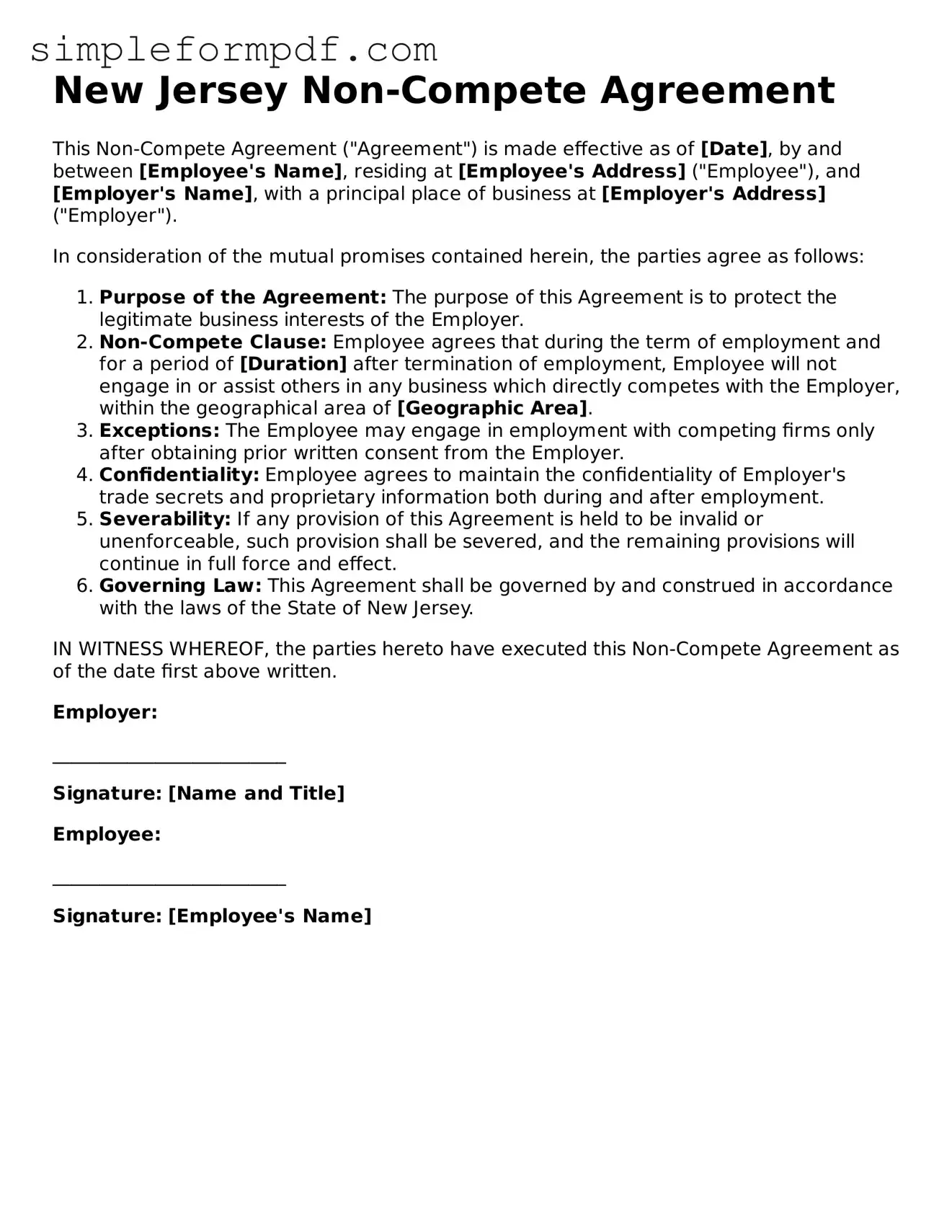Free Non-compete Agreement Form for the State of New Jersey
A New Jersey Non-compete Agreement is a legal document that restricts an employee from working for competitors or starting a similar business within a specified time frame and geographical area after leaving their job. This form helps protect a company's confidential information and competitive edge. If you need to create a Non-compete Agreement, click the button below to get started.
Launch Editor

Free Non-compete Agreement Form for the State of New Jersey
Launch Editor
Need instant form completion?
Finish Non-compete Agreement online in just a few minutes.
Launch Editor
or
Download PDF
